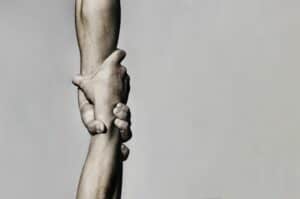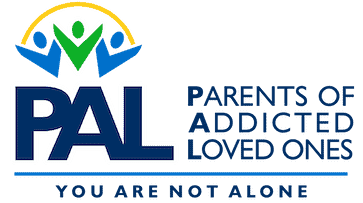
My son was an athlete and very successful. We spent countless hours together as he grew up, traveling the state for baseball tournaments, practices, and social functions; baseball was our life. I was a single dad doting on his every need as he was an only child and I had raised him since he was a pup. At 15 he experienced a severe ankle injury that temporarily cut baseball from our lives. He was given pain medication and became addicted, and that dependence eventually spiraled out of control.
I sent him to a treatment center for two months and it seemed to work. He got back into high school, graduated and received a baseball scholarship at a local college. I thought he was back on track. However, addiction raised its ugly head again and he only made it through his freshman year. He came home and tried to cover it up and admitted that he had a “small problem.” I sent him to treatment once again, all the while wondering “where did I go wrong?” I felt like a complete failure as a father, the one job I have truly cherished. I was embarrassed and did not breathe a word of my shortcomings as a parent to anyone. I began to decline social invitations and self-isolated in fear that friends would ask “how is your son doing?”
After treatment he ended up in a halfway house, seemed to be doing well, landed a job, got a car and apartment. After a couple years I found that while he was working, he was still using. I was totally obsessed with “getting him on the right track.” Attempting to control his behaviors from 180 miles away. I made many late-night trips to check on him and provide guidance, which was not always welcomed, to say the least. He was homeless for several months in between jobs, I was worried sick and truthfully began mourning his eventual passing. I was upset with myself for my perceived shortcoming as a parent. I had allowed his addiction to control my every waking thought, personality and interaction with others.
I was tired of chasing a cure for him. One late night as a 21-year-old he called sobbing, saying his girlfriend was in ICU with a severe infection from sharing needles, adding that he was extremely ill and needed help. This time I asked him what his plans were instead of stepping in and finding a facility for him. He called me the next night advising me that he was checking himself into a treatment facility and he would like to see me. I made the two-hour drive to the facility and when I walked in, I was shocked that I did not recognize him. Formally he was a 6-foot 1 inch, 210-pound “strapping young lad.” Now he was disheveled, completely yellow and weighed about 140 pounds. He told me “Dad, I am so sorry, I can’t stop and if I don’t, I am going to die.” It was a moving moment for me – the first time he took responsibility for his actions and recognized the consequences.
He took treatment very seriously became involved in AA, NA, and HA, gained a great sponsor, grand-sponsor and great-grand. He took his sobriety equally seriously and after a year or so announced he was going back to school at the local community college. He did extremely well there and received an academic scholarship to the state university.
I first learned of PAL and the benefits of the group about four years into my son’s recovery when I was still experiencing the guilt, shame, and social isolation of his addiction – it just seemed to linger, and I couldn’t pull myself out of it. I was taking an extended learning class on leadership from the state university and each session a civic leader would address our small group. One day the presenter introduced himself as the parent of two sons dealing with addiction and talked about the issues and problems that he had experienced in his family because of that. Incredibly, he was a commander with the Phoenix Police Department, and I was completely shocked that he could stand up in front of the group without shame and speak about how he questioned his parenting skills and how PAL had helped him move through the pain, guilt, and sorrow he experienced as a parent.
I was completely blown away and thought there was a higher purpose for this gentleman to travel all the way to our small town and bring up this subject, which was not even the topic for the day. I felt that he was speaking to me personally and I can tell you, I listened. I pulled him aside after the class and let him know how impressed I was with his journey and let him know part of my story. He gave me some guidance and where to find a local PAL group. Later I was chagrined to not have noted his name.
I went to my first PAL meeting and announced that I was there on behalf of my son and the struggles he encountered. I had never publicly uttered those words that my son was an addict, so right from the start that was a healing event for me. What I should have said was “my son entered treatment and is doing well; now I’m the one who needs help.” And help I did receive.
My son is now in his last semester of law school and will soon be looking to graduate, take the bar exam and land a job. I am grateful to report that he has been sober for eight years and is a well-adjusted human. I am very proud of him and the 29-year-old man that he has become. We celebrate his sobriety and becoming a productive member of society every time we get together.
As for me, I no longer blame myself and will openly speak about the issues surrounding addiction and the help PAL provides to parents who are struggling and trying to figure out which way to turn. PAL has been a godsend for me, and my wish is that by writing this I can give some parents a glimmer of hope in the “new” world we are in.
One final note: it wasn’t until the course of writing this article that I discovered the man who addressed my class that day and impacted my life so significantly was none other than Kim Humphrey, who today is the CEO/Executive Director of PAL. I want to thank him for changing my life.
A PAL dad

Thank you for sharing your story. It is so helpful to hear these stories that provide me hope for the future of my daughter.
Thanks again, Renee – it means a lot to know these blogs are making a difference! You’ve been a faithful reader and encourager.